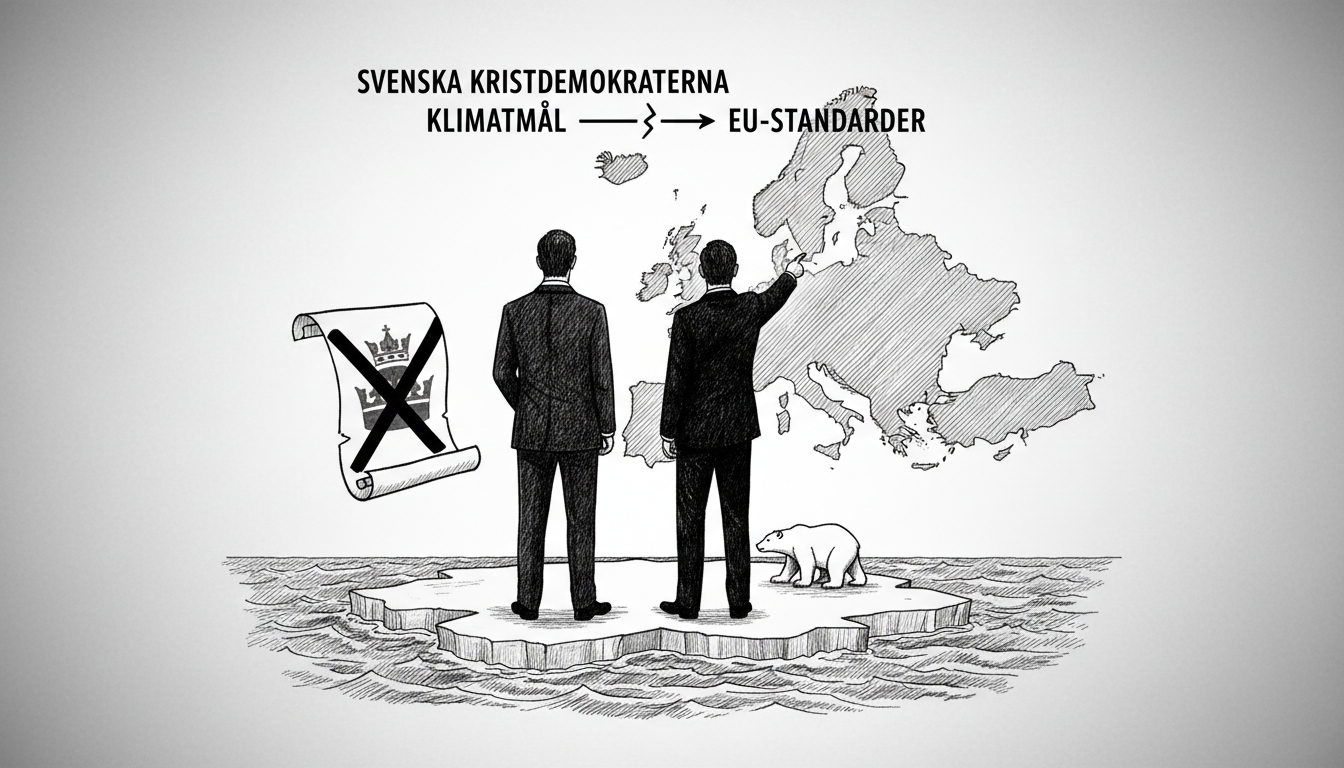The Swedish Christian Democrats have announced plans to abolish Sweden's national climate targets and instead align with European Union standards. Rural Affairs Minister Peter Kullgren presented the party's new climate program during a Wednesday press conference, arguing Sweden should not bear unreasonable burdens.
Kullgren stated Sweden has already reduced emissions by 63 percent since the 1970s and claims the country has done its part compared to other EU nations. He emphasized that Sweden picked its low-hanging fruit early, making further reforms more difficult and expensive for Swedish households and businesses. The minister suggested focusing instead on EU climate policy, particularly global coal phase-out efforts.
"We don't make real difference by taking meatballs from schoolchildren or turning Swedish forests into museums," Kullgren said during the announcement. "We make difference through EU climate policy and global transition away from coal."
The Green Party has launched strong criticism against the proposal. Spokesperson Daniel Helldén called the Christian Democrats' plan "walking backward into the future" and accused them of breaking previous environmental agreements. Helldén rejected arguments that Sweden's climate targets are unfair, noting Sweden's historical responsibility as a major historical emitter among Western nations.
Sweden's climate policy debate reflects broader tensions within European environmental governance. The country has long positioned itself as a climate leader with ambitious national targets exceeding EU requirements. This proposal represents a significant shift in political strategy that could influence other member states considering their climate commitment levels.
Political analysts note this move comes amid growing concerns about economic competitiveness and household costs. The Christian Democrats appear to be positioning themselves as pragmatists focused on practical solutions rather than symbolic leadership. However, environmental groups warn this could undermine Sweden's international reputation on climate issues.
The proposal would need broader political support to become policy, making its immediate adoption unlikely given current parliamentary dynamics. Yet it signals potential future conflicts over Sweden's climate ambition as economic pressures intensify.
International observers are watching closely as Sweden's approach could influence climate policy debates across Europe. The outcome may determine whether member states maintain individual ambition beyond collective EU targets or converge toward common standards.

